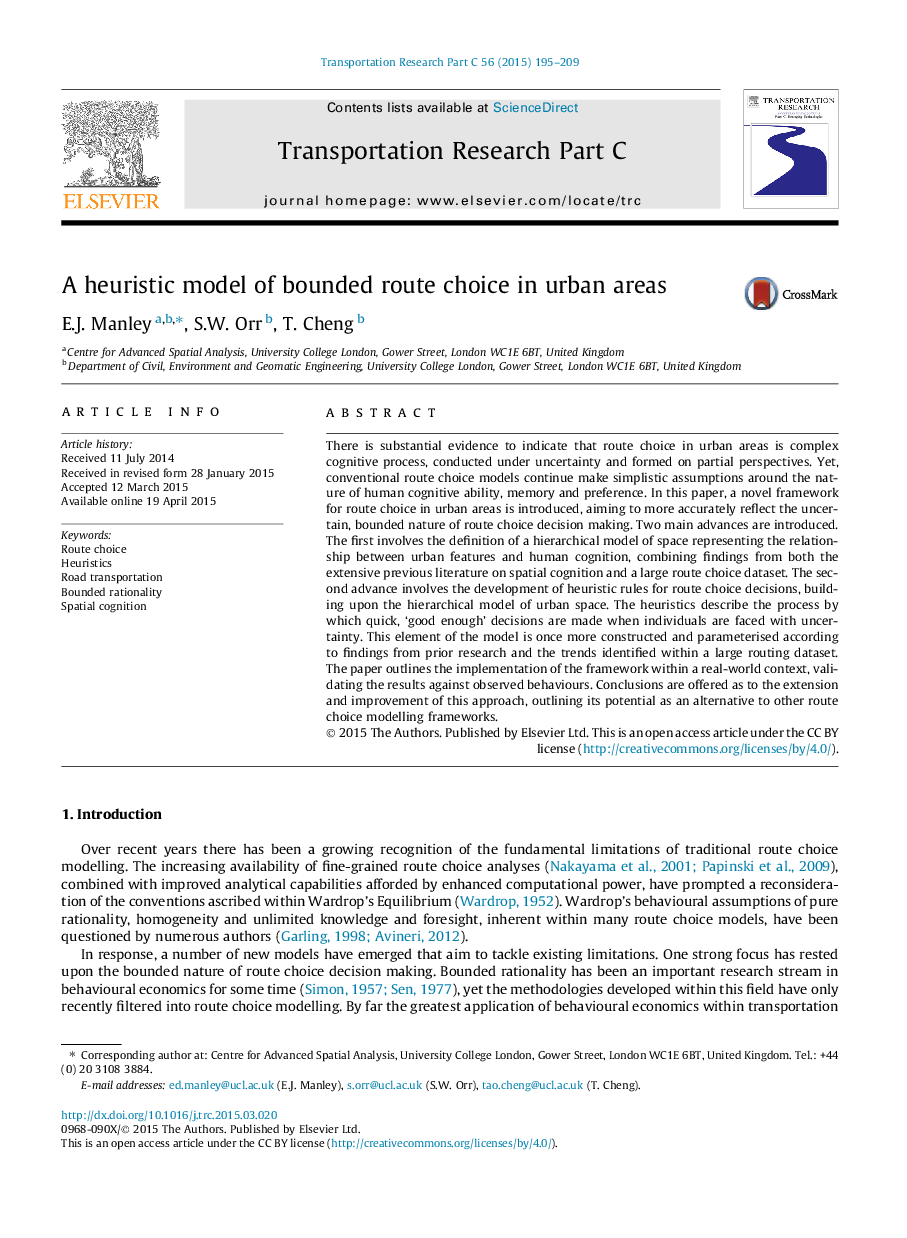| Article ID | Journal | Published Year | Pages | File Type |
|---|---|---|---|---|
| 6936743 | Transportation Research Part C: Emerging Technologies | 2015 | 15 Pages |
Abstract
There is substantial evidence to indicate that route choice in urban areas is complex cognitive process, conducted under uncertainty and formed on partial perspectives. Yet, conventional route choice models continue make simplistic assumptions around the nature of human cognitive ability, memory and preference. In this paper, a novel framework for route choice in urban areas is introduced, aiming to more accurately reflect the uncertain, bounded nature of route choice decision making. Two main advances are introduced. The first involves the definition of a hierarchical model of space representing the relationship between urban features and human cognition, combining findings from both the extensive previous literature on spatial cognition and a large route choice dataset. The second advance involves the development of heuristic rules for route choice decisions, building upon the hierarchical model of urban space. The heuristics describe the process by which quick, 'good enough' decisions are made when individuals are faced with uncertainty. This element of the model is once more constructed and parameterised according to findings from prior research and the trends identified within a large routing dataset. The paper outlines the implementation of the framework within a real-world context, validating the results against observed behaviours. Conclusions are offered as to the extension and improvement of this approach, outlining its potential as an alternative to other route choice modelling frameworks.
Related Topics
Physical Sciences and Engineering
Computer Science
Computer Science Applications
Authors
E.J. Manley, S.W. Orr, T. Cheng,
